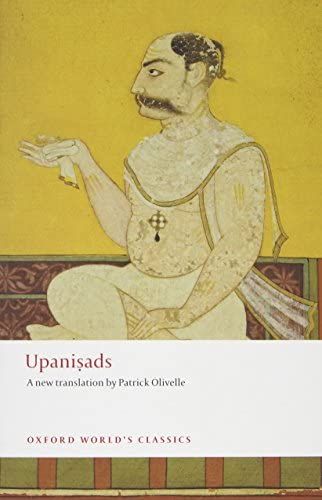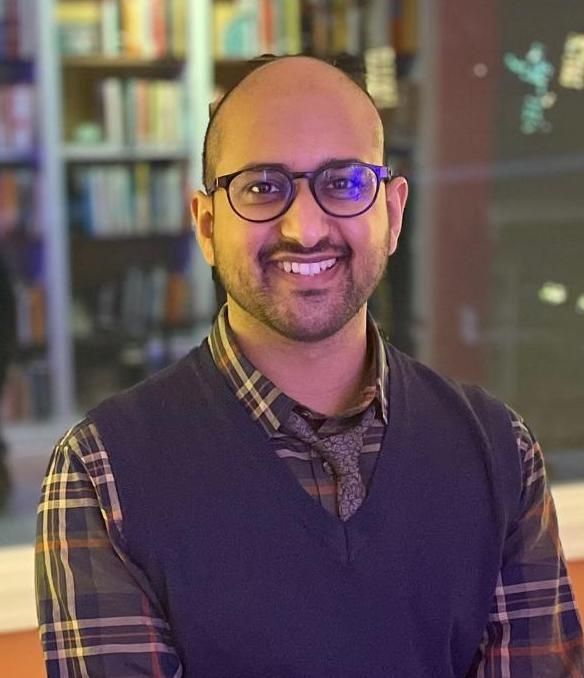
Course Description
Join Dr. Varun Khanna and a global cohort of students for a journey into early Upaniṣadic philosophy.
Who am I? Why am I here? What is my goal in life? Is there a way to transcend death, and achieve immortality? In this course, we will explore these fundamental questions and more by reading selections from the Chāndogya Upaniṣad, Kaṭha Upaniṣad, and Kena Upaniṣad.
The Upaniṣads form the core primary texts for the Indian philosophical school of Vedānta. As Sadānanda Yogīndra describes it in his text Vedāntasāra (Essence of Vedānta), “Vedānta is that which takes the Upaniṣads to be its primary source of knowledge, along with all ancillary texts that help to ascertain what the Upaniṣads say, such as the Brahma Sūtras, etc.” As such, every Vedānta tradition, whether it is dualist or non-dualist, traces its ideas back to the Upaniṣads. Since “Vedānta” literally means “end of the Vedas”, many understand the Upaniṣads to occur at the linear end of the Veda texts. However, this is observably not the case — instead, “end of the Vedas” can also mean the philosophical “end” or culmination of Vedic thought. We will look deeply into the Upaniṣadic corpus to understand what exactly this philosophical culmination looks like.
In this course, we will attempt to read the aforementioned Upaniṣads on their own terms. We will read the stories as they are and discuss their historical implications, development, transmission, and philosophical import. We will read line by line, based on the original Sanskrit and Patrick Olivelle’s English translation. Students will leave the course with a better understanding of the structure and content of the Upaniṣads and a deeper appreciation for Upaniṣadic philosophy.

Course Modules
Module 1 — What is an Upaniṣad?
Module 2 — That knowledge by which everything becomes known
Module 3 — “I give you to death!”
Module 4 — The secret to immortality and eternal happiness
Module 5 — Who moves me?
Module 6 — The Upaniṣads and the meaning of life
Students Will Receive:
- 12 pre-recorded class sessions + audio recordings (90 min each)
- 5 YS Credits
- 18 Hours of CE credit with YA
- Course Syllabus (PDF)
- Sanskrit-English translation of the text (PDF)
- 6 Multiple Choice Quizzes
- Yogic Studies Certificate (PDF)
- Access to the private Community Forum
Dr. Varun Khanna
Visiting Professor, Swarthmore College
As a pre-med undergrad student, Varun Khanna accidentally stumbled into Sanskrit when he tried to learn Ayurveda during a study abroad program in India. After learning to speak and becoming fluent in the language, he changed direction and became a full-time student of Sanskrit and Indian philosophy. He then traveled through various jungles and cities in India to learn from different Sanskrit gurus, specializing in Pāṇinian Sanskrit grammar. Varun later earned both his master’s degree in Sanskrit and his PhD in Hinduism (studying consciousness in the Upaniṣads) at the University of Cambridge. He has been teaching spoken Sanskrit, Pāṇinian Sanskrit grammar, and topics in Indian philosophy since 2008, and is now a Visiting Assistant Professor of Classics teaching Sanskrit at Swarthmore College.
Varun’s research interests lie at the intersection of Sanskrit and social justice. His latest work centers on thinking through the power dynamics related to the transmission of Sanskrit in academic and non-academic spaces, from the perspective of both the teacher and the student. He has recently launched a sub-field of Sanskrit studies called Critical Sanskrit Studies to host the investigation into Sanskrit and its relationship to power.
Upaniṣads Series
This course is part of a series of courses on the Upaniṣads taught by Dr. Varun Khanna. Students can sign up for any course individually, and are not required to take them in any particular order. Or enroll in all three and save with the special bundle.
This course is eligible for 18 hours of Continued Education (CE) credits with Yoga Alliance

Stay Informed
Sign up for the Yogic Studies mailing list to find out first about upcoming courses, podcast episodes, promotions, events, and the latest research delivered straight to your inbox.





